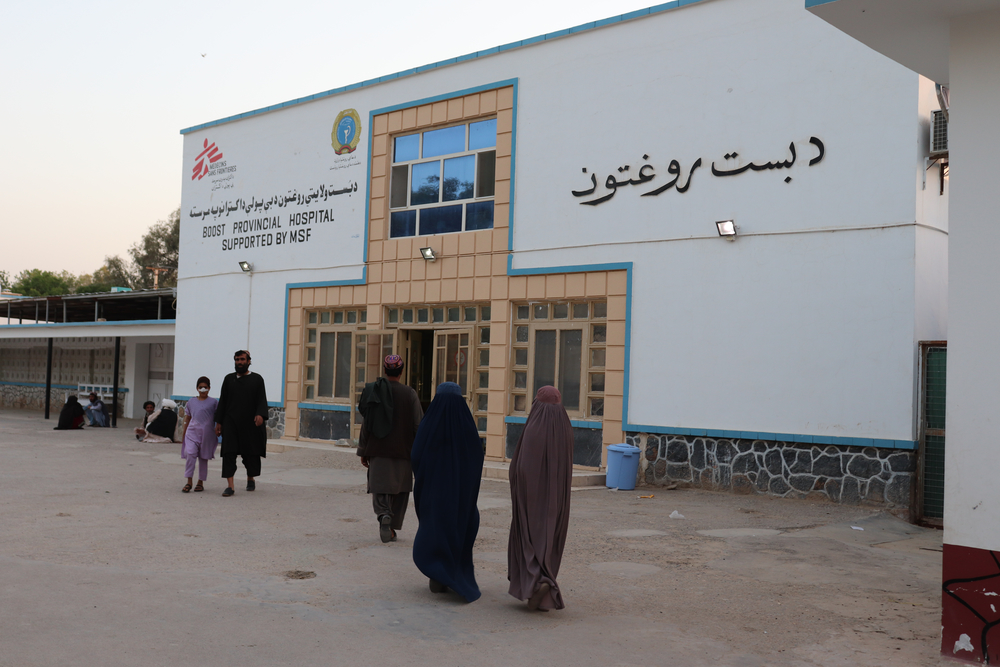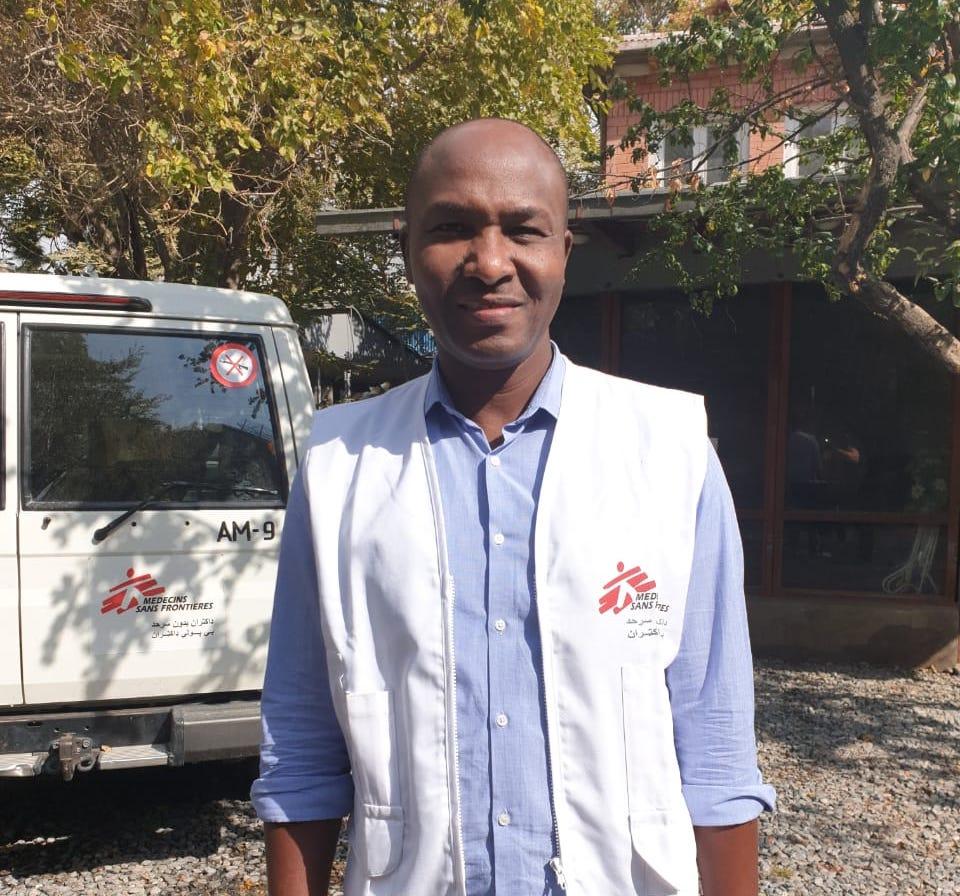I started my humanitarian career as a Relief Food Monitor. I´m from Turkana in northern Kenya, a region characterized by frequent droughts and it was fulfilling finding myself involved with work aimed at alleviating suffering for my community. Little did I know this would be first step of my humanitarian career journey.
I joined Médecins Sans Frontières (MSF) in 2009, and have since worked in Kenya, South Sudan, and Holland. Since the end of 2019 I have been working in Afghanistan. I spent the past year there through COVID-19 and during the recent shifting of the government of Afghanistan to the Islamic Emirates of Afghanistan.
My initial assignment was in Boost, Helmand province, where we were working in collaboration with the Afghanistan Ministry of Public Health to provide secondary healthcare including specialized outpatient and inpatient care, intensive care, pediatrics, surgery & maternity. The hospital has 300 beds and is always busy – it is easy to see how much the project is needed by the local community.
I worked as a project finance manager, working in the hospital compound with the rest of the management team. I was still able to meet patients almost every day, whilst visiting the hospital or helping to supervise the night shift outside of my working hours.
I am passionate about my work as a humanitarian, but as you can imagine, I have also encountered challenges whilst working in Afghanistan.
The COVID-19 lockdown was quite a difficult moment. Due to travel restrictions, I got stuck in Afghanistan for almost a year, without the usual break for holidays. What kept me strong was the consolation that I wasn’t the only one going through the situation. The lockdown affected almost everyone globally and we were all in it together. I also had a great team around me, and we kept comforting and supporting each other; we had no choice except adapting to the situation as it was.

While still in Helmand, we could hear shooting a few kilometers away from the hospital and our living compound. This would happen almost every day, either during the day and at night. We also heard planes flying above us. We would receive patients with gunshot wounds or people injured by explosions when the city’s main trauma hospital was full. Over time the situation became very intense. It impacted the population´s access to healthcare, it wasn’t safe for patients to move or travel and sometimes when they arrived at the hospital, they were in critical condition due to delays as a result of the insecurity.
My second assignment to date in Afghanistan was another challenging one. I moved from Helmand to Kabul to work in the coordination office.
I vividly remember the historic 15th August 2021 when the Islamic Emirate of Afghanistan took over and suddenly many things changed; banks closed, the airport became inaccessible, other aid organisation´s started leaving the country and commercial flights were suspended. For a couple of weeks everything came to a standstill; we couldn’t fly in or out, or smoothly make payments related to our operations, it was completely difficult, but we tried every way possible to keep our operations running and we succeeded.
I also had frightening moment on the night of 31st August. There were gunshots all over the city, including around our living compound. It was so scary as I had no idea what was going on. I spent the whole night panicking, expecting the worst. I found out the next morning that the shootings were peaceful celebrations, and this had been communicated on the team’s WhatsApp, I never read the message due to my panic - I was too afraid even to pick my phone to call anyone because of what was going on around me. What I went through that night is beyond anyone’s imagination. I now see it as part of my learning process, which I wouldn’t have experienced if I had not been there.
MSF was among the few organizations that have continued to provide medical care in Afghanistan before, during and after the conflict and the recent shift in government in the country. I realized that such moments of crises are when our humanitarian work is needed even more - those are not the moments to run away but instead to stay and try to help the population.
After a while when movement was possible, it was eventually time to take a break, though my travel going home was not easy. I took a flight from Afghanistan to Pakistan and spent more than eight hours in transit in Pakistan before connecting to Doha in Qatar. I then took my final flight from Doha to Nairobi after another 12 hours transit.
Despite all these challenges, I am now headed back to Afghanistan.
What has been interesting to me is how I have become a source of information to Kenyans back home. It amazes my friends when I tell them I am just back from Afghanistan and that I will be returning there in a couple of days.
They keep asking me if what they know about Afghanistan from the media is different to what I have experienced there. Another common question was how I managed to come home, especially now.
I always get the same follow up question, asking why I am going back to Afghanistan after what I have been through. I tell them that I have not yet done even half of my assignment, I still have eight more months to serve, and I want to see it through to the end.
This is not a call for the faint-hearted. But when you have an equally committed and supportive team, the job is even easier. When you can make the most out of challenging situations, it makes you so proud as a team. And when you see how much the medical care we provide is needed, it is incredibly fulfilling.
